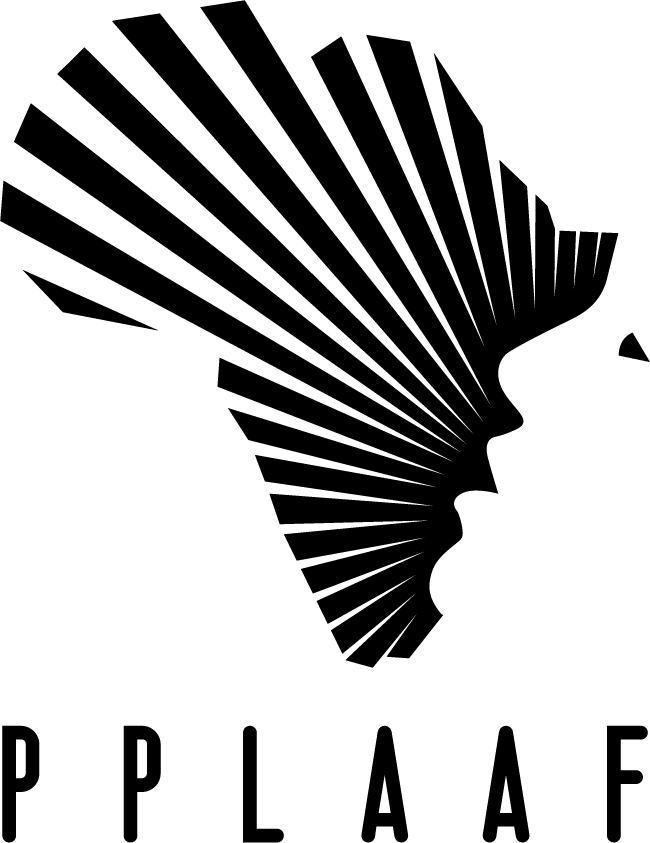Published in 2021
Relevant legislation:
- Constitution of the Republic of Rwanda (2015)
- United Nations Convention Against Corruption (UNCAC) 2003
- Southern African Development Community (SADC) Protocol Against Corruption
- Law for Protection of Whistleblowers No.44/2017
- Ombudsman Law No.76 0f 2013
Summary
The Republic of Rwanda was established in 1961 following a constitutional referendum organised by Belgium which had assumed control from Germany after the First World War. Rwanda has a chequered history together with neighbouring Burundi, with ethnic tensions between the three major groups, majority Hutu (84%) and minority Tutsi (14%) and the Twa or Pygmy (1%), having a profound influence on the development of the state. These ethnic tensions came to a head during 1994 after the assassination of the then president Juvenal Habyarimana, a Hutu and former defence minister. His assassination was blamed on the largely Tutsi Rwandan Patriotic Front and led to what is now remembered as the Rwandan Genocide. In just over 100 days over 800 000 people, mostly Hutu and Tutsi, were killed in the ensuing violence. The Rwandan Patriotic Front (RPF), with the aid of Uganda, took control of the capital Kigali, causing almost two million Hutus to flee to the neighbouring Democratic Republic of Congo for fear of reprisal attacks from Tutsis and the RPF. The RPF established a government of national unity with Pasteur Bizimungu, a Hutu as president, and leader of the RPF, Paul Kagame, a Tutsi as vice-president. In 2000, following a dispute over the composition of a new cabinet, President Bizimungu resigned from office and Paul Kagame assumed the office of president, a position he occupies to date.
Rwanda has a Whistleblower Protection Law no. 35 of 2012, subsequently amended in 2017 by the Law for the Protection of Whistleblowers, no 44/2017. The purpose of the law as stated in Article 1 is “to protect whistleblowers with a view to safeguarding public interest”. As an emerging democracy with a turbulent past, it is incumbent on the Rwandan state to foster a sense of accountability for public and private conduct to avoid a repetition of the recent genocide, and to ensure that the scourge of corruption does not rear its head to feed and inflame ethnic tensions which would return its fledgling democracy to a state of civil war.
Whistleblower laws and policies
Whistleblowing is the act of exposing conduct within an institution which is unlawful and harmful to the integrity of the institution and an abuse of trust and authority by its members in the normal course of their duties. This conduct is underpinned by corruption and a lack of transparency and accountability, and very often perpetrated by those individuals entrusted with the task of driving the development goals of these institutions.
Article 2 paragraph 5 of the Law 44/2017 defines a whistleblower as “any person who discloses information in his/her possession or which has been brought to his/her attention which is connected to offences, illegal acts or behaviour”. Article 3 further creates an obligation on any person who has knowledge or information connected to offences, illegal acts or conduct to disclose such information to the relevant authorities. Public servants, employees in public institutions and private entities are similarly tasked to report incidents of illegality and misconduct. The guiding principle of the legislation is safeguarding the public interest. It is also stated that the prospective whistleblower should properly vet the intended disclosure and have proof of the misconduct complained of.
Disclosures are to be made to the relevant institutions where the alleged conduct complained of occurs, and can be made verbally, in written form, either by an individual or by a concerned group of persons within the institution. A further requirement is that the identity of the whistleblower must be disclosed upon making a disclosure. Whistleblowers are prohibited in terms of Article 5 from making false disclosures and should avoid potential conflicts of interest intruding into the subject matter of their disclosures. The disclosure should be made in the public interest and to promote accountability and good governance in all institutions, both public and private. The aim should be to eradicate corruption and fraud and personal enrichment goals which adversely impact the public. There must be acknowledgement of the receipt of a complaint, signed by both the whistleblower and the official who receives the disclosure. A requirement of the law in Article 6 is that the institution receiving the complaint, after proper evaluation of the merits thereof, should inform the whistleblower of the progress of the matter.
Similarly, as in jurisdictions like the Republic of South Africa, the United States of America and Botswana, whistleblowers are afforded legal protections against reprisals for the disclosures they make in terms of Chapter III of Whistleblower Law no. 44/2017. Article 9 clearly states that the Rwandan state bears the responsibility for effecting measures guaranteeing the safety and security of whistleblowers. There is a further requirement in the same provision that whistleblowers are entitled to rewards for the successful recovery of property and the preservation of public safety which result from their disclosures. It is enacted in the law that such reward is to be determined by a presidential decree.
Any person who acts in a retaliatory manner against any whistleblower, or such whistleblower’s confidante/informer or any other person, irrespective of whether such person is in an employment relationship or not, shall be guilty of violating the provisions of Article 11 of the Rwandan Whistleblower Law no. 44/2017. Article 11 lists the following acts as victimisation: “dismissal, suspension, denial or delay in promotion, demotion, redundancy, poor performance appraisal, discrimination, any form of victimisation; and being made subject to any other administrative sanction, harassment, threats by the employer or a colleague of the employee”. The prohibited conduct listed above is by no means exhaustive and a proper interrogation of such reprisal action in an appointed forum tasked with protecting the rights of whistleblowers under threat or attack may even broaden the scope of prohibited conduct.
The victimisation of whistleblowers attracts severe sanction under Rwandan law. Article 17 stipulates that any person convicted of the offence of victimisation of a whistleblower shall be liable to a term of imprisonment of not less than three (3) years but not exceeding five (5) years, and a fine not less than one million (1 000 000) but not exceeding two million (2 000 000) Rwandan francs. Severe penalties also apply in respect of a person who discloses the identity of a whistleblower, which is a contravention of the provisions of Article 16, and on conviction renders such person liable to a term of imprisonment of not less than two (2) years but not exceeding three (3) years, and a fine of not less than two million (2 000 000) but not exceeding three million (3 000 000) Rwandan francs.
The Rwandan law on whistleblower protection is equally robust in how it punishes improper and false reports of unlawful conduct disguised as whistleblowing. Under Article 5 a whistleblower is prohibited from making a false report motivated by personal gain, hatred or jealousy; or any other ulterior motive based on inaccuracies and not factual. Article 5 subparagraph 2 further prohibits a disclosure which is intended to defame or dishonour an entity or individual subject to whistleblowing. Any person disclosing information in violation of the provisions of Article 5 is liable on conviction to a term of imprisonment of not less than one (1) year but not exceeding three (3) years, and a fine of not less than five hundred thousand (500 000) but not exceeding one million (1 000 000) Rwandan francs. Whilst there are incentives and guarantees for whistleblowers to come forward and report misconduct and fraud, there are deterrents against false reporting, which separate the wheat from the chaff as it were.
Secrecy Laws
The Constitution of Rwanda (2015) in Article 23 states “the privacy of a person, his or her family, home or correspondence shall not be subjected to interference in a manner inconsistent with the law, the person’s honour and dignity shall be respected”. Article 38 of the Constitution guarantees freedom of the press, of expression and of access to information. The provision further states that these freedoms shall not prejudice public order, good morals, the protection of the youth and children, and the right of every citizen to honour and dignity and protection of personal and family privacy. In a nutshell then it is noticeable these two rights as expressed here are at odds in that the right to a person’s dignity and honour takes precedence over the right to freedom of expression, freedom of the press and access to information. The practice of corruption is often perpetrated under the guise of “public policy” or regulatory measures imposed without following accepted statutory guidelines and regulations. How then are reporters of nefarious conduct to expose these transactions and dealings without exposing themselves to libel suits and criminal prosecution for disclosures which do not follow the mandated reporting channels.
The Rwandan Law relating to access to Information (law no.4/2013) enables members of the public and journalists to access information held by public institutions and some private entities. Article 4 of the said law states information withheld by a public organisation, such as for example the Rwandan National Police, or a private entity; may not be published if it would : destabilise national security, impede the enforcement of law or justice, involve interference in the privacy of an individual when it is not in the public interest or obstruct contemplated or actual legal proceedings against the management of a public organ. Corrupt practices generally seem to proliferate in public institutions in countries such as Rwanda which is heavily dependent on foreign donor aid. It is in these state-run institutions where there is less accountability and transparency that whistleblowers should be allowed to report misconduct to other forums outside of the entity nominated individual. These reporting agents should be independent from the institution which is the subject matter of the complaint to ensure a thorough investigation and due process to run its course.
The security establishment in Rwanda is extensive and the catchphrase used to stymie disclosures in the public interest is the often used “national security”. A case in point was the case of Agnes Nkusi, a journalist and editor of the Rwandan newspaper Umurabyo. After publishing an open letter critical of the the state’s violations of press freedoms she was arrested and charged with sectarianism and discrimination. This led to her being kept in detention based on the allegation she represented a threat to “state security”. She was eventually convicted in April 2007 and sentenced to a year imprisonment and fined $760.
Media And Speech Laws
The Constitution of Rwanda (2015) guarantees the right to freedom of press, of expression and of access to information in Article 38. There is an internal limitation contained in that provision which stipulates that the exercise of this right shall be subject to the interests of public order, good morals, protection of the youth and children, and the right of every citizen to honour and dignity. The limitations clause within Article 38 has the effect of self-censoring the work of journalists and media professionals to the extent that robust debate is silenced, even on issues which qualify as being in the public interest, which has a knock on effect of the willingness of whistleblowers to step forward and expose misconduct.
The right of access to information, if limited prior to its exercise, effectively stifles debate. The history of the Rwandan genocide casts a long shadow over every aspect of Rwandan society, to the extent that journalists and members of the media play to the pro-Kagame regime script as set out the preamble to the Constitution. Most journalists opt to self-censor than run the risk of being accused of promoting divisionism and discrimination based on ethnicity. Other means of silencing criticism is to invoke the provisions of the criminal law, specifically Chapter 8 of the Rwandan Penal Code which criminalises defamation and imposes a term of direct imprisonment not exceeding three (3) years on conviction.
The Law on the Regulation of the Media is used to muzzle dissenting opinions in the media and to monitor journalists. Very often they are forced to work in a hostile environment which subjects them to prosecution and imprisonment for independent critical analysis. This environment can therefore be a deterrent to whistleblowers who have information on state officials engaged in misconduct. The influence of the security forces is extensive and they frequently interfere in to approve which type of information reaches the public domain. In this situation journalists opt to self-censor and not expose their informants and sources to backlash as the media is not a designated reporting agency or institution in terms of the whistleblower protection legislation.
Weaknesses And Possible Reforms
The absence of a designated central agency to receive and investigate whistleblower complaints and thereafter institute criminal/civil proceedings is a major hurdle in the fight to eradicate corruption whilst effectively guaranteeing the safety of whistleblowers. The absence of civil society organisations which are bold enough to bring the disclosures into the public domain is another feature which effectively hamstrings the whistleblower culture from taking root and thereby creating an environment where accountability and transparency become commonplace. The influence of the RPF and the almost hegemonic hold on power by the president Paul Kagame is of major concern any debate on critical issues can be construed as a personal attack on the regime and him. The Supreme Court in April 2019 upheld a law which criminalises defamation against the president and can attract a sentence of imprisonment of between five (5) and seven (7) years. This judgement reaffirmed the widely held view that the judiciary is not independent and defers to the executive branch of government. In light of this how then are whistleblowers to feel secure that the law will be able to protect them in light of the regime’s history of ostracization, imprisonment and even murder of people who cast the administration in a negative light.
Freedom of expression and access to information coupled with the right to disseminate this information are the cornerstones of a stable, democratic and transparent society. Any shackles placed on these rights which are not reasonable and justifiable under law is lip service and makes a mockery of the whistleblower protection legislation. The unfettered authority by the Rwandan security services to monitor communications without the requisite court approved authority is a major obstacle to the free flow of information and impedes the exercise of the right to freedom of expression and access to information critical for the benefit of the public. The fact that journalists have to receive state approved accreditation also limits the discourse, thereby narrowing the avenues whistleblowers can utilise to disclose information critical in the fight against corruption. The Rwandan state has been previously implicated in the murder of dissidents opposed to the state in jurisdictions like Uganda and South Africa, where four (4) diplomats were expelled after being implicated in crimes against dissidents. Clearly if the abuse of authority and even murder sanctioned by the highest office in Rwanda are not addressed, then the culture of whistleblowing will not take root, irrespective of the existence of these protections.
Compliance With International Standards
Rwanda has enacted a formal whistleblower law with specific protections set out therein providing recourse against reprisals for disclosures validly made by them. In this regard there is basic compliance with the formal requirements of accepted whistleblower policy. There is a vacuum in the legislation as the procedural aspects are vague as to when a dedicated agency will be established to formulate policy, and independently receive and investigate disclosures with a view to bringing transgressors to book. There needs to be a whistleblower agency with a dedicated staff, independently appointed by parliament for a fixed, once off renewable term of five (5) years for the director and deputy director. This would offer a degree of independence from the executive branch of government and allow the interrogation of complaints without fear or favour. The law as currently scripted seems to have been a concession to the international community and the donors of aid to placate them amid concerns that the Rwandan regime and the RPF are abusing state resources to advance their own agenda.
Rwanda is a signatory to UNCAC and a member of the African Union and pays lip service to advancing the ideals set forth in the conventions simply by having domesticated the formal provisions contained in the international conventions of the African union and the United nations Organisation. The vagueness in the enforcement thereof is the Achilles heel and the dominance of the Rwandan security forces, with the Rwandan Patriotic Front at the helm, is an indicator that there is still much work to be done before Rwanda can be considered a member of the progressive community of nations.
Knowledge, support and action centers
Conseil de Concertation de Organisations du’ Appuin aux Initiatives de Base (CCOAIB)
CCOAIB is an organisation dedicated to the research of civil society organisations in Rwanda and the promotion of open democracy and transparency. It is an initiative started by Rwandan activists after the end of the Rwandan civil war, its primary focus then being the repatriation and reintegration of Rwandese nationals who had been stateless since 1959.
- Tel: +250 584865
- Fax: +250 584866
- Email: ccoaib29@rwanda1.com
- Website: www.ccoaib.org.rw
RWANDA Civil Society Platform (RCSP)
RCSP is a platform of civil society organisations which seek greater citizen participation in sustainable development programmes through dialogue and advocacy at national level in Rwanda (with state institutions) and international donor agencies. Its primary focus is on sustainable economic initiatives.
- Address: Kigali City-Gasabo District and KG 123 Str – Kibagabaga
- Tel: +250 7123456789
- Email: info@rcsprwanda.org
Open Society Initiative for Southern Africa (OSISA)
The Open Society Initiative for Southern Africa is part of the global Open Society Foundations (OSF) and operates in 11 Southern African countries. OSISA focusses on programmes which advocate for greater civil society participation in the affairs of the respective countries and to promote transparency and good governance and to make state institutions and government more accountable to its citizens.
- Address: 1 Hood Avenue/148 Jan Smuts Rosebank, Gauteng Province South Africa
- Tel: +27 (011) 587 5000
- Fax: +27 (011) 587 5099




